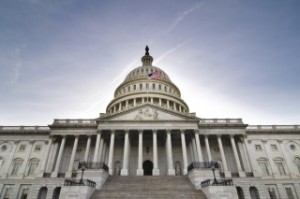Breaking News:
The date, long dreaded by college students and campus administrators around the US, has finally arrived. Thanks to congressional inaction, students who take subsidized government loans after Monday, July 1st will see their interest rates double from 3.4% to 6.8%.
Bottom Line:
That means that the already high burden of student loan debt – the affected subsidized Stafford loans are government student loans primarily made to US students whose families’ make less than $50,000 – will only increase. Though this rate hike has been months in the making (the expiration of the former Stafford Loan interest rates was built into a short-term extension Congress passed last year) it is students, not legislators, who will – quite literally – pay the price.
The Story:
More than 7 million US students (including many US study abroad students) make use of Stafford loans and though the interest rates on outstanding loans will not be affected, borrowers can expect to pay substantially more in interest over the life of new loans issued after July 1st. Indeed, according to Congress’ own Joint Economic Committee the average recipient will see their borrowing costs go up by $2,600 – and in some extreme cases as much as $4,000 – over the life of a loan.
A Senate vote on a bill that would keep the current lower rate in place for another year is scheduled for July 10th but there are few, if any indications of whether a deal can be reached before the start of the fall semester (and the increase in borrowing that naturally accompanies it). A solution, if reached, would likely be retroactive but just what shape that solution would take remains unclear. Generally, lawmakers in both parties in Congress and the White House agree that something should be done, but they don’t agree on what. While Democrats are arguing for another short-term extension, Republicans in the House want to link student loan rates to the financial markets. US President Barack Obama, for his part, included a variation of that market-based approach in the budget he sent to Congress earlier this year but disagrees with the GOP about how to manage increases in a market-based system over time.
As a result of this indecision, college students around the country are sweating over more than the summer heat this July.






Hi there compagni, il suo meraviglioso pezzo di chip di scrivere su quasi interamente spiegato, tenere riserva fino sempre il tempo durata .